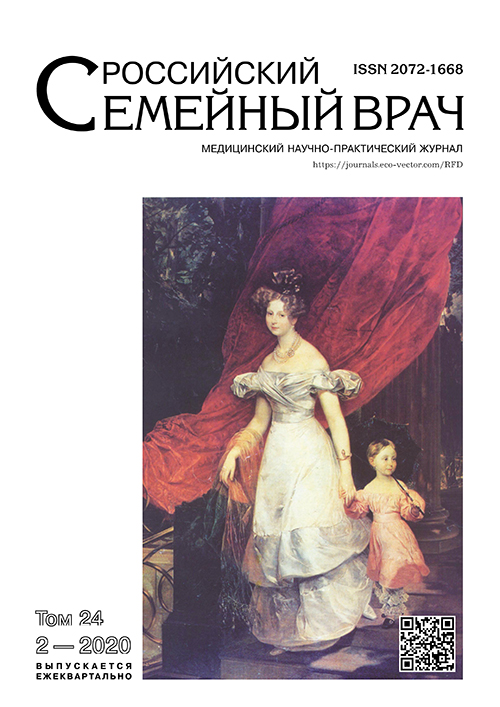Vol 24, No 2 (2020)
- Year: 2020
- Published: 11.08.2020
- Articles: 6
- URL: https://journals.eco-vector.com/RFD/issue/view/1982
- DOI: https://doi.org/10.17816/RFD.20202
Lectures
Non-specific prevention of coronavirus infection
Abstract
The lecture is devoted to non-specific prevention of coronavirus infection. Various measures are described to prevent the spread of COVID-19 to both the public and healthcare providers. The characteristic of various measures for the disinfection of medical and household waste is given. A detailed description of various personal protection methods with a description of the rules for their use is given. Attention is drawn to the rules for the use of personal protective equipment during a pandemic. Attention is drawn to common errors encountered when using personal protective equipment. The importance of their use in order to prevent the spread of infection outside medical institutions is emphasized.
 5-12
5-12


Nutrition strategy for patients under conditions of the coronavirus infection pandemic (SARS-COV-2)
Abstract
In this review, we discuss about nutritional status and the role of diet and lifestyle in patients with SARS-COV-2 infection. This review speculates the importance of nutrition as a mitigation strategy to support immune function amid the coronavirus pandemic, identifying food groups and key nutrients of importance that may affect the outcomes of respiratory infections.
 13-17
13-17


Review
Summary of the World Health Organization’s guidelines for management for patients with coronavirus infection
Abstract
A brief overview of the guidelines for the management of patients with the new coronavirus infection COVID-19 published by the World Health Organization guidelines in May 2020 is presented. The article covers sections that primarily concern the medical care to patients with COVID-19 in outpatient settings.
 19-30
19-30


Treatment changes of coronavirus infection disease (SARS-COV-2). What general practitioner should know? Part 1
Abstract
The article presents an overview of methods of treatment of coronavirus infection based on available data from recent clinical studies and methodological recommendations. Drugs recommended as etiotropic therapy are considered. Data from clinical trials and expert opinions are analyzed.
 31-38
31-38


The problem of the elderly protection in the elderly care institutions during COVID-19 pandemic
Abstract
In early 2020, the COVID-19 pandemic is spreading rapidly around the world. Globally, as of 4:44 pm (Central European Summer Time (CEST), 24 June 2020, there have been 9,129,146 confirmed cases of COVID-19, including 473,797 deaths, reported to WHO, with a mortality rate of 5.19%. Among them, the morbidity and mortality of the elderly account for a large proportion. Elderly care institutions have become the most severely hit under the background of pandemic outbreaks. Elderly care institutions around the world face great challenges in protecting the elderly during the COVID-19 pandemic. Based on the characteristics of the elderly, this article explores the protection of elderly care institutions in the response to the pandemic and puts forward suggestions on the health management of the elderly, the closed management of elderly care institutions and the improvement of pension service mode in public health emergencies.
 39-44
39-44


Case report
Features of mahagment of a patient with a new coronaviral infection in the observator on the basis of student’s dormitory
Abstract
The article is devoted to the peculiarities of clinical manifestations and the severity of a new coronary virus infection in a university student transferred to an observatory organized in a hotel-type hostel to prevent the spread of COVID-19 among students living in hostels. The data on the epidemiological history of the patient, the results of clinical observation and examination are provided. The tactics of managing a patient with a suspected of COVID-19 on an outpatient basis, symptoms that determine the indications for hospitalization, the results of examination and treatment in a hospital, and further observation at the observatory are considered.
A new coronavirus infection can lead to a rapid deterioration in the condition of young patients, which does not correlate with indicators indicating lung damage on the 5th day of the disease. Persistent hyperthermia and severe weakness with anorexia can be indicators of the complicated course of the disease, including the development of hyperactive inflammatory syndrome. Hypochromic anemia can be another disease, which is an unfavorable background for the development of COVID-19. The course of the new coronavirus infection in young patients requires careful attention and further study.
 45-51
45-51












